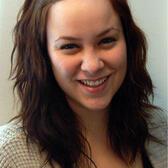Domestic Abuse: “That Doesn’t Happen Here”
I confess that even at age 26, my usual reading list consists of young adult science fiction novels, usually set in the future (see: The Uglies series, The Hunger Games series, The Mortal Instruments series, and so on. Stop judging me – I want to be a YA author!) Recently, though, I challenged myself to break out of my comfort zone and read a few more adult novels, which led me to “The Murderer’s Daughters.”
“The Murderer’s Daughters,” a novel by Randy Susan Meyers, is a fictionalization of the author’s own experiences as a child, co-narrated through the lens of two sisters. The story begins with older sister Lulu’s recollection of the evening her mother warned her not to let the girls’ estranged father into their apartment for fear that his drunken temper would endanger them all. And endanger them it did: Lulu, trusting her father despite her mother’s warning, lets him in, and within moments, the unthinkable has happened. Her father has fatally stabbed her mother, and he’s stabbed her sister Merry, too, leaving the younger girl with a souvenir scar that will serve as the physical reminder of the emotional night that will haunt the sisters forever, albeit in very different ways.
Despite my knowledge of domestic violence within the Jewish community, I found myself surprised to learn that Lulu, Merry and their family were Jewish. Perhaps I’d subconsciously fallen prey to the community’s old domestic violence mantra: “That sort of thing doesn’t happen here.”
But it does.
The Jewish Coalition Against Domestic Abuse (JCADA) is one of many organizations working to erase the stigma associated with domestic violence within the Jewish community. Their website notes, in bold: “Yes, domestic abuse occurs in Jewish families at about the same rate as in the general community – about 15% and the abuse takes place among all branches of Judaism and at all socio-economic levels.” JCADA estimates that as many as 7,500 women may be abused by their spouses or partners – and that number doesn’t seem to include men, who are, of course, not immune to such violence.
JCADA also identifies ways the Jewish community may differ from the general or secular population when it comes to handling domestic abuse. Among them are the community-wide shanda, or shame, of being a victim of domestic abuse (“Women experience shame as members of the Jewish community because they know that Jews are not supposed to be victims of abuse.”) and the mitzvah of Shalom Bayit, which commands a woman to create peace within her home and may prevent abused Jewish women from coming forward to admit that they are victims.
Yet despite these community conventions, domestic violence clearly violates Jewish principles and traditions. In the Book of Women, the Jewish scholar Maimonides wrote, “…The sages commanded that a man should honor his wife more than he honors himself, and love her as he loves himself … He should not intimidate her too much; he should speak with her gently, and should be neither saddened nor angry." (Sefer Nashim 15:19)
The obvious next question is: What can we do to combat domestic abuse within the Jewish community?
• Learn more about domestic abuse – how to recognize the signs, what to do when you suspect someone is being abused, and how to encourage a silent victim to seek help.
• Teach the young women in your life about the risks of dating violence, including physical, emotional and sexual abuse. Talk to teenagers about healthy relationships and mutual respect.
• Ask Congress to reauthorize the Violence Against Women Act, which criminalizes domestic abuse and sexual assault; provides communities with federal resources for responding to violence against women; funds rape crisis centers; and much more.
The Jewish community is many things – vibrant, passionate, faithful, multi-faceted. But we are not immune to the nasty realities of domestic abuse, no matter what the outdated mantra of “It doesn’t happen here” may suggest. It does happen here, and it is incumbent upon us to admit it and work to eliminate the community shanda associated with being a Jewish victim of domestic abuse.
It happens here. But it doesn’t have to.






